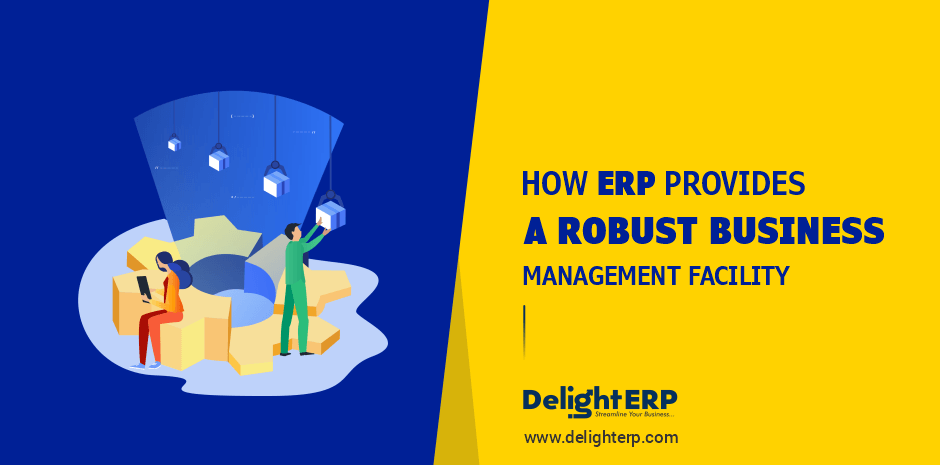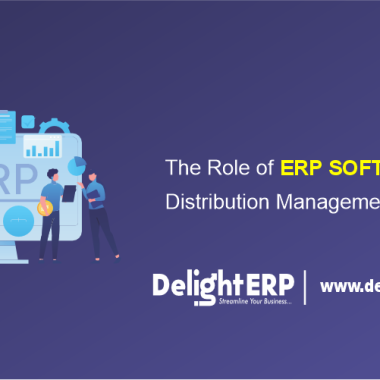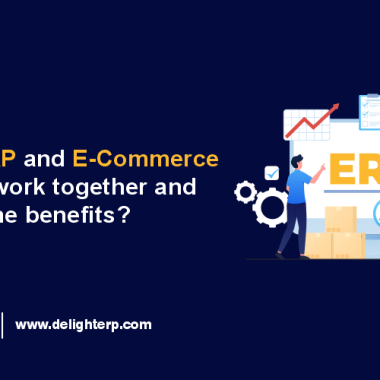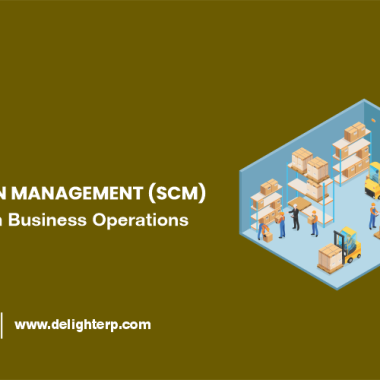Introduction of Enterprise Resource Planning (ERP)
ERP is the short form for Enterprise Resource Planning. It has integrated many modules that can be useful in managing business processes. It has been used in every sector like non-profit organizations, the health sector, public sector units, etc. The organization that involves staff, inventory, clients, projects, customers, products, etc. mandatorily needs an ERP system to manage them.
Not only in more prominent organizations, has the ERP software been used in small scale organizations as well as start-up organizations also. It has been proved in a recent analysis that 96% of the organizations rely on ERP for managing their businesses. Some of the companies providing ERP solutions are Oracle, SAP, Sage X3, SysPro, Microsoft Dynamics, IQMS, Epicore, etc.
Not only data storage, but an ERP system also manages various functionalities of an organization like lead management system, supply chain management, human resources, customer relationship management (CRM), inventory management, finances, business analytics, project management, etc. Hence, we can say that ERP is an all-in-one package for any organization that makes business management more effortless.
Also read, How Cloud ERP Software Is Useful In Business Financial Tracking.
Now Let’s See Why ERP Is Essential In Any Organization
1) Monetary savings
In business, there are various departments, and each department has its method to operate and store the data. This may also include the use of different types of software in each department. E.g., Accounting software for accounts, a lead management system for Sales, etc. This may cost much more than what an ERP would cost. Also, the centralization of data is possible in ERP, and hence various departments can operate the data from a single source. Thus, the cost of buying multiple software for each department is reduced by introducing an ERP system.
2) Improved analysis of data
In any organization, past data is analyzed periodically to predict the client’s interests and behavior, and hence it would also help in managing the inventory. If the information is not centralized, the collection of data from various departments might be a cumbersome task, being it time-consuming too. Hence, in a centralized system, analytical reports can be generated quickly and periodically. This is an automated process; once you set the date and time for making a report, the system will automatically create it at that particular date and time without you being worried about it.
3) Increasing Productivity of the employees:
As much time is saved in an ERP system, the time consumed while performing manual tasks such as data analytics, report generation, accounting, inventory reports, etc. is gradually decreased, and hence the employees can now focus on developing various business strategies that can be helpful to the organization. Thus, in this way, employees’ productivity can be increased.
4) Managing Inventories
Stock records, materials imported or exported for manufacturing, etc. can be achieved through ERP. Hence, the system always provides an alert whenever the stock goes below some pre-decided threshold. Also, it gives a reminder for future purchases and sales. Therefore, we need not go and check the inventory and prepare reports manually.
5) Data Security
An ERP system uses various authentication techniques such as bio-metrics identification, login id, password, e-mail verification, generation of OTP, etc. to avoid unauthorized access in the software and hence providing high-end security to the organization.
6) Buy what suits your organization
There are many ERP systems available in the market, and all with a set of different features and functionalities. Some of them provide basic functionalities, while some of them also offer advanced features. It depends on the size and growth of an organization to decide which software to buy. If the organization is developed on a larger scale, it needs the software with advanced features. If the organization is a small scale business, then the software with basic functionalities will do the job. So, the more advance features you opt, the more you have to pay. Hence, before buying ERP software, it is recommended to have proper research on what the software provides and which software suites the organization’s needs.
7) Provides Transparency
The use of ERP to store the data centrally, and generate periodic analytical reports provides the transparency of data and proves that the information is not tampered or false. Also, it eliminates multiple data entries and redundant data. Hence, the data stored in the ERP system is always normalized.
8) Less workforce required
As financial data, analytical reports, stock management features are handled by the system itself, there is no need to hire a staff mainly to perform these activities. This results in the cost-effectiveness of the software too.
9) ERP Access from anywhere anytime
The latest ERP systems are also available in mobile devices. Hence, to access your data, you need not sit in front of your personal desktop computer and do the manipulations; you can also have those things done even from mobile devices.
10) Surviving Competitions
In the competitive scenario among the businesses, if the organization does not have an automated system, it would waste all its time in maintaining the organization manually and won’t be able to focus on developing the business concerning the recent trends and technologies. Hence, the clients might start doing the market with other organizations. Therefore, an automated system is required for an organization to handle the internal processes so that it can focus on external developments.
11) ERP Scalability
If you have bought essential ERP software, and now the organization has started growing, and you need more advanced features in the software, it is possible with ERP. You can upgrade your software anytime to purchase the advanced features of the system.
12) Cloud-based storage
Recent ERP software embedded with the latest technologies store the data on the cloud and hence encourages the accessibility of data from anywhere anytime.
13) Customer Support Service
Most of the ERP software comes with free customer support whenever required, along with the package purchased, for a specific period. Apart from this, the all-time online customer care services are available to solve your minor issues with just a call or an e-mail.
Visit This To Get Your Free ERP Demo.
Conclusion of ERP
Hence, from the above observations, we can conclude that ERP provides robust business management facilities and has been proven as a valid business management strategy.




